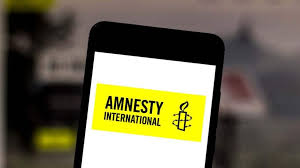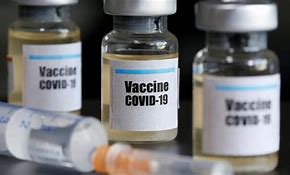Gallery
Amnesty International’s false claim of ‘incessant witch-hunt’ exposed.

Amnesty International has said it is halting all its activities in India, claiming that it is being subjected to an ‘incessant witch-hunt’ over unfounded and motivated allegations. In a statement on Tuesday (September 29), Amnesty India said that it has been compelled to let go of staff in India and pause all its ongoing campaign and research work.
On the contrary, activities of Amnesty International in India were found to be suspicious and when the investigation started, it decided to halt its activities in the country, rather than facing the charges. In the recent probes, it has been found that the international organisation even failed to obtain the necessary permission to work in India, and was functioning illegally for so many years.
Amnesty has been receiving crores of rupees from abroad every year, while it was expected to register itself under the Foreign Contribution Regulation Act (FCRA) for the same. The Government of India, therefore, seized all the bank accounts of Amnesty, which has been active in India under four different names, according to the investigation.
After being exposed, the Amnesty stated, “The complete freezing of Amnesty International India’s bank accounts by Government of India which it came to know on 10 September 2020, brings all the work being done by the organization to a grinding halt.”
“This is latest in the incessant witch-hunt of human rights organizations by Government of India over unfounded and motivated allegations,” Amnesty International India said, adding that it stands in full compliance with all applicable Indian and international laws.
The organisation further stated, “For human rights work in India, it operates through a distinct model of raising funds domestically. More than four million Indians have supported Amnesty International India’s work in the last eight years and around 100,000 Indians have made financial contributions.”
Amnesty supporters again raised the slogan of democracy under threat in India. The question comes to our mind what work this foreign organization was doing that halting of its activities will put India’s democracy under threat.
Amnesty International is a United Kingdom-based non-governmental organization (NGO). Established in 1961, Amnesty describes itself as an organization working in the field of human rights. It opened its office in India immediately after its establishment. While working in India, it had strived hard to defame India rather than protecting the human rights of Indian people.
In the year 1947, the British left India, but these institutions are still working to enslave the Indian people ideologically. The DNA analysis will further expose the activities of an organisation like Amnesty International.
You will be shocked to know that this organization has been campaigning against India worldwide on the issue of Jammu and Kashmir. It has also campaigned in favour of 26/11 attack convict Ajmal Kasab, Parliament attack convict Afzal Guru, and 1993 Mumbai blast convict Yakub Memon.
Amnesty has also been very active with Urban Naxals, besides issuing a lot of statements on the Bhima Koregaon violence. It has relentlessly worked to tarnish India’s image on the global forums.
This international organisation also played a suspicious role after the Delhi riots in February this year. It also released a report on the Delhi riots in different parts of the world stating that the Delhi Police committed violence against those who were holding peaceful demonstrations.
The report gave a clean chit to rioters and also made an attempt to prove that these riots were anti-Muslim. This report has no doubt dented India’s image internationally, and Pakistan used the report to spread the false propaganda against India on international forums.
Refuting Amnesty International’s allegation, the Union Home Ministry said that all the “glossy statements” about humanitarian work and speaking truth to power are nothing but a “ploy to divert attention” from their activities which were in clear contravention of laid down Indian laws.
It said the Amnesty’s statement was “unfortunate, exaggerated and far from the truth,” adding “Such statements are also an attempt to extraneously influence the course of investigations by multiple agencies into the irregularities and illegalities carried out over the last few years.”
Notably, India’s fight is not just with Amnesty International, but also with the misuse of foreign funding. Crores of rupees come from abroad in India in the name of social service every year, but no one knows where this fund is being used as NGOs hardly give details related to their work.
Currently, there are around 31 lakh registered NGOs in India. In 2015, the CBI submitted this information before the Supreme Court. The question arises as to why there is a need for so many NGOs in a country like India.
You will be surprised to know that the number of NGOs is more than double the total number of schools; this number is 250 times more than the total government hospitals in the country.
Notably, there is one NGO for every 400 people in India, while there is only one policeman for 700 people; only 10 percent of NGOs follow government regulations, and the rest of 90 percent do not even submit their balance sheets.
In the recently concluded Monsoon Session, Parliament amended the Foreign Contribution (Regulation) Act (FCRA), which has created an uproar among NGOs receiving suspected foreign funding. The role of civil society is important in any democracy, but anti-national activities cannot be allowed under its guise.
Not only India, but several other countries are upset with the activities of NGOs. Around 40 countries including Russia, Israel, Hungary, and Egypt have enacted stringent laws against NGOs. Even in America, there is a ban on the interference of any foreign institution in its domestic politics. The Indian government has also followed the same international policy.
During the UPA government, the action was taken against such NGOs. In 2009, 883 NGOs were blacklisted on the charges of misusing funds. In 2012, registration of more than 40,000 social institutions was canceled, following the protests against the Kudan-Kulam nuclear project in Tamil Nadu. The role of these NGOs was found to be suspicious during the UPA 2 government.
Business
Budget 2021: From the perspective of FM Nirmala Sitharaman,

Finance Minister Nirmala Sitharaman presented the Union Budget 2021 today. The budget gave major emphasis to healthcare and infra sectors. Besides, a host of substantial announcements were made on the divestment front, including the coming IPO of Life Insurance Corporation. Here are the Key highlights of the Union Budget 2021:
- No significant change was made in the area of income tax.
- For Y21 fiscal deficit at 9.5% of GDP, with FY22 fiscal deficit target at 6.8% of GDP. Hope to get to back to fiscal consolidation path by FY26. Fiscal deficit will reach below 4.5% by FY26. FY22 gross expenditure seen at Rs 34.83 lakh crore.
- For Y22 capital expenditure provided is up 34.5% (vs FY21 BE) at Rs 5.54 lakh crore, said the Finance Minister. Rs 44,000 crore under capital expenditure will be given to Department of Economic Affairs in FY22, she added. FY21 capital expenditure is seen at Rs 4.39 lakh crore.
- The government has left direct taxes unchanged, but took steps in direct tax incentives to ease compliance for taxpayers. The FM proposed making it so that advance tax liability on dividend income shall arise only after payment of dividend. The Budget also looked at pre-filled tax forms with respect to details like salary income, tax payment and TDS.
- No tax filing for seniors above 75 with only pension, interest income. A dispute resolution committee for small taxpayers is being planned. Anyone with taxable income of up to Rs 50 lakh, disputed income of up to Rs 10 lakh eligible to approach dispute resolution committee.
- Agri Infrastructure and Development Cess on a number of items including fuel and liquor was announced today but the finance minister also said there would be no additional burden on the consumer overall. Budget imposed a Rs 2.5 per liter agri infra cess on petrol, Rs 4 on diesel, and of 100% on alcoholic beverages.
- The finance minister announced that in case a bank fails or withdrawals from the bank are stopped due to financial pressure on the bank, the depositors will be able to get immediate access to their deposits up to the deposit insurance amount of of Rs 5 lakh.
- The Budget proposes setting up faceless dispute resolution committee for individual tax payers, making Income Tax Appellate Tribunal faceless, and constituting the dispute resolution committee for small taxpayers.
- The FM outlined six pillars of proposals to strengthen the vision of Atmanirbharta, namely health and wellbeing, capital and infrastructure, inclusive development, reinvigorating human capital, innovation and R&D and minimum government and maximum governance.
- By announcing 1000 more agriculture product marketing committees (APMCs) or mandis will be linked to e-national agriculture market (e-NAM), Nirmala Sitharaman subtly sent a message to farming groups that the government has no intention of dismantling an established APMC system.
- The allocation to healthcare in this budget has been increased substantially. The areas of focus will be preventive and curative healthcare as well as well being, she said. The allocation is likely to be around Rs 2,23,846 crore, a 137% percentage rise from the previous budget. Rs 35,000 cr has been budgeted for COVID-19 vaccination expenditure in FY22.
- The Govt sees FY22 fiscal deficit at 6.8%, according to the FM, while she had pegged deficit at 3.5% for FY21 in the last Budget. Govt aims to get Rs 1.75 lakh crore through divestments in 2021-22, according to Budget documents. In FY21, it planned to raise Rs 2.1 lakh crore through divestments, falling short. CPSEs in all but four sectors will be eventually privatized.
- The Budget 2021 gave a renewed push to disinvestment and asset monetization as the government strives for capital creation. “Monetizing of land will be taken up. A SPV will be launched to carry out this activity,” said the FM.
- Sitharaman said govt will borrow Rs 80,000 crore in the remaining two months to meet FY21 expenditure, and is projected to borrow about Rs 12 lakh crore in FY22.
- The FM announced plans to privatize 2 PSU banks and one general insurance company in FY22. The Govt will bring the long-awaited LIC IPO in FY22, adding that it plans to complete the divestments of BPCL, CONCOR and SCI in 2021-22.
- The Govt is set to introduce a Development Financial Institution (DFI). Rs 20,000 crore will be provided to capitalize the new DFI, with an aim to have a lending portfolio of Rs 5 lakh crore in 3 years. National Monetization Pipeline for brownfield projects will be launched, the FM announced with NHAI and PGCIL having sponsored one InvIT each. She also added that vehicles will undergo fitness tests after 20 years for PVs, 15 years for CVs, announcing a voluntary vehicle scrapping policy.
- The Govt plans to allot Rs 20,000 crore for bank recapitalization of PSBs. The FM also proposed to revise definition under Companies Act, 2013 for small companies by increasing their threshold for capitalization.
- FM says projects for building 8,500 km of highways will be awarded by March 2022. While presenting the Union Budget 2021-22 in Parliament, the finance minister also said poll-bound West Bengal will see highway projects worth Rs 25,000 crore.
- The government has raised basic customs duty on import of sub-parts of mobile phones and battery chargers from nil to 2.5% in FY21-22. The price impact will be known once the details are clear.
- India will set up seven textile parks over three years under the scheme of mega investment textile parks which was announced in Budget FY22. The parks to be setup over 1,000 acres of land with world class infrastructure, and plug-and-play facilities, will be addition to the Rs 10,683-crore production linked incentive (PLI) scheme for technical textiles and manmade fibers.
- The Budget set agriculture credit target of Rs 16.5 lakh crore for FY22, and will further increase provision to rural infra development fund to Rs 40,000 crore from earlier Rs 30,000 crore. Sitharaman said the govt is committed to welfare of farmers, pointing at how 1.54 crore farmers benefited from MSP in paddy and wheat in FY21. Furthermore, underlined that Rs 75,060 crore was paid to farmers for wheat in FY21 versus Rs 62,802 crore in FY20.
- FM Sitharaman proposed to consolidate provisions of the Sebi Act, Depositories Act, Securities Contracts Regulation Act, and the Government Securities Act. Government aims to amend Insurance Act to allow higher FDI, increasing FDI limit in insurance to 74% from 49% and allowing foreign ownership.
- An allocation of Rs 1,10,055 crore to be made. Of this, Rs 1.07 lakh crore is for capital expenditure for FY22. The eastern and western dedicated freight corridors will be commissioned by June 2022, it was announced. The FM also announced plans for east coast corridor, east-west corridor, north-south corridors. 100% electrification of broad-gauge routes will be completed by December 2023, she said.
- The government will enable electricity connections portability to consumers by introducing competition in the power distribution space and kickstart a Rs 3 lakh crore reforms scheme for state power distribution companies, finance minister Nirmala Sitharaman announced.
- The government on Monday said the free cooking gas LPG scheme, Ujjwala will be extended to one crore more beneficiaries. She further said city gas distribution network of providing CNG to automobiles and piped cooking gas to households will be expanded to 100 more districts.
- 69 crore beneficiaries (86% beneficiaries) were covered under the One-Nation, One-Ration card implemented by 32 states and union territories.
- The FM proposed doubling of MSME allocation, setting aside Rs 15,700 crore for medium and small enterprises in FY22.
- The govt plans to allow incorporation of one-person companies with no restriction on paid-up capital and turnover. Non-resident Indians will also be allowed to incorporate one-person companies in India, the FM added.
- The government has withdrawn a tax benefit for mergers and acquisitions (M&A) that would result in marginal increase in the cost of transactions. The government in the Budget 2021 said that no depreciation would be allowed on goodwill.
- India to launch Deep Ocean Mission, with allocation of Rs 4,000 crore over next four years.
- Finance Minister Sitharaman allocates Rs 3,726 crore for the forthcoming Census, calling it “the first digital census”.
- Government to notify rules to eliminate double tax for NRIs on foreign retirement funds
- Govt to extend eligibility of erstwhile tax sop on home loan up to FY22. The FM also said that affordable housing projects can further avail tax holiday for one more year. The FM proposed extension of tax holiday for start-ups by one more year, a tax exemption for relocating funds to IFSC, and tax holiday for aircraft leasing business in Gift city.
- She said that income tax return filers increased to 6.48 crore in 2020 from 3.31 crore in 2014.
- Propose to review more than 400 old exemptions to customs duty, and from October 1 will put in place a revised customs duty structure free of any distortion, the FM said. Govt plans on reducing customs duty uniformly to 7.5% on products of non-alloy, alloy and stainless steel, exempting duty on steel scrap till March 2022. The FM added that to provide relief to copper recyclers, the govt will be reducing duty on copper scrap from 5% to 2.5%.
- The Department of Space has been allocated Rs 13,949 crore in this Budget, of which Rs 8,228 crore have been earmarked for capital expenditure. Rs 700 crore has been allocated for the New Space India Limited (NSIL), a newly formed PSU under the Department of Space. Also as part of the Gaganyaan mission activities, four Indian astronauts are being trained on Generic Space Flight aspects, in Russia. The first unmanned launch is slated for December 2021;
- A total of Rs 39.67 crore has been allocated to the Lokpal for the next fiscal, according to Union Budget 2021-22. The provision is for establishment and construction related charged expenditure for the Lokpal, it said.
- “I propose to provide Rs 1,000 crores for the welfare of tea workers especially women and their children in Assam and West Bengal,” the FM said while presenting the Union Budget 2021-22.























